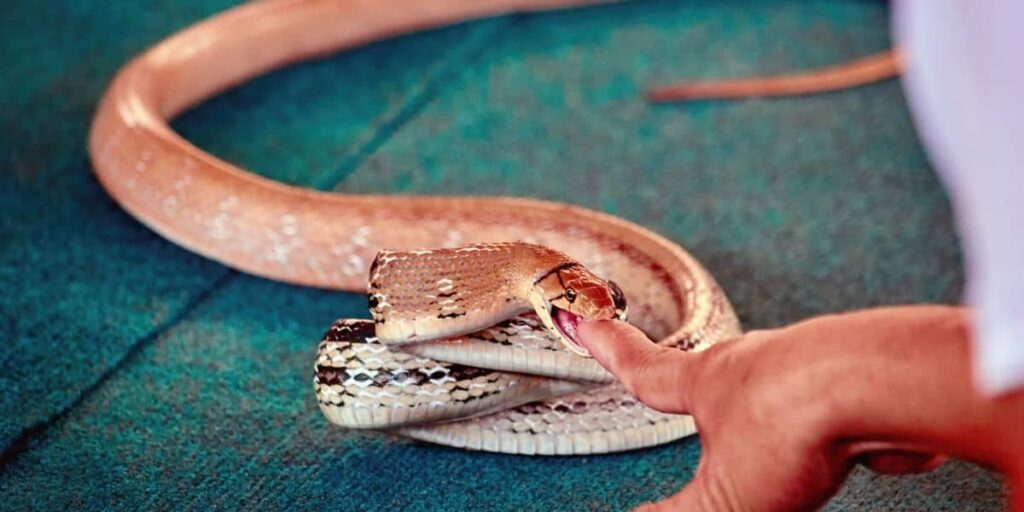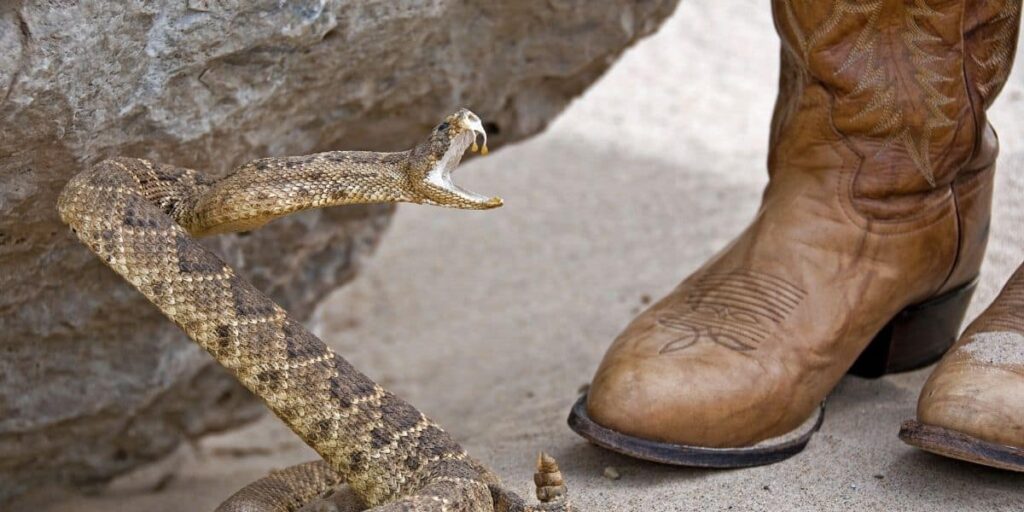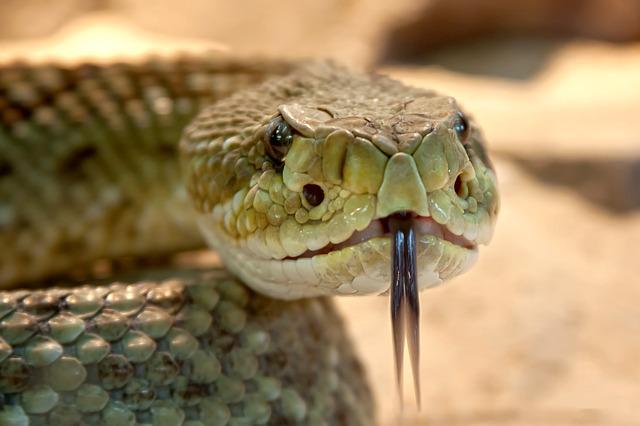We are all familiar with the image of an irritated snake raising itself off the ground and hissing. But not many of us will have experienced anything like this in real life. So, can we be sure that this is, in fact, a behavior that snakes exhibit?
Snakes do hiss but they don’t do it to provoke fear in humans, although many people would disagree. The snake will hiss as a way of protecting itself and to deter predators.
Many people are terrified of snakes, especially if they begin making scary hissing sounds. But understanding why snakes do this can make it a little easier to accept.
If you have a pet snake, it is crucial that you understand this behavior since this is one of the snakes ways to letting you know he isn’t happy and you can adjust the situation to make him feel more at ease.
Why Do Snakes Hiss?
When you think of a snake, you might think of a predatory animal with venomous fangs that will bite anything that crosses its path. It’s true that the snake is a handy hunter but he certainly isn’t an apex predator.
In fact, the snake is prey for a lot of animals and for this reason, he needs ways of protecting himself. While he does have the ability to strike, a hiss serves as his first line of defense and tells predators to keep away.
Depending on the size of the snake, he may protect himself in different ways.
For example, a larger snake may have size on his side and this could be enough to put a potential predator off.
However, for smaller snakes, it’s going to take a lot more to get a predator to go running off into the distance and as a little creature, the small snake relies heavily on his ability to vocally scare off animals looking to make a meal of him.
When a snake hisses, this often creates the illusion of a much larger animal that a predator probably wouldn’t want to fight. What’s more, if you have ever listened to a snake hissing, you will know that the sound alone can be pretty intimidating.
How Do Snakes Hiss?
Snakes are incredible creatures that have a lot of adaptions that make them perfectly suited to their environments. Their anatomy is vastly different to that of a human and when they hiss, they are using their unique physiology.
When snakes breathe, the rely on an organ in the back of the throat called the glottis. A they take each breath, this organ opens and closes at a normal pace and allows the snake to control the level of air moving in and out of the body.
You wouldn’t typically be able to hear the snake breathing, unless they want you to. You see, when it’s time to hiss, the snake has total control over the glottis and how it operates.
Rather than breathing normally, the snake is able to force air through the glottis with greater pressure. As a result of this, the internal structure of the glottis vibrates and rattles causing a hissing sound.
Can Snakes Protect Themselves In Other Ways?
Hissing, as we have mentioned, is one of the first lines of defence when a snake is faced with a predator. Even if you are looking after a pet snake, you may notice him hiss if he feels threatened.
In this case, you should back away from the snake and allow him to calm down.
Should you ever meet a snake in the wild that starts hissing at you, keep in mind that you are in the snakes territory and he just wants to keep himself safe.

In reality, he would rather you leave than have to bite you but when dealing with wild snakes, it is never worth taking the risk, especially if you don’t know whether it is venomous.
However, some predators may try their luck even after the snake has been hissing and this means that he may need to ramp up his efforts to protect himself.
How a snake reacts will depend on the species. For example, some will emit a musky odor that will put a predator off eating them, whereas others will raise themselves off the ground to appear larger.
Biting is usually the last ditched attempt to get rid of a threat and, as you are probably aware, some snakes have incredibly potent venom that could quickly kill a predator or anything that gets in the snake’s way.
Other Snake Sounds
A lot of creatures in the animal kingdom will make sounds to communicate with others but this is not the case with snakes.
These are highly anti-social animals that don’t interact with other members of their species unless it is for mating purposes.
Hissing is purely a defence sound designed to intimidate and while snakes may hiss at each other during a confrontation, this isn’t a way to tell their opponent anything other than ‘back off.’
But what is extremely interesting is that some snakes also have the ability to growl.

This sound has been most commonly noted in the King Cobra, a snake that is widely feared for its size and aggressive nature. Despite this, they are incredibly beautiful snakes but should be admired from afar.
It is unknown as to why the King Cobra emits a growling sound but those that have heard it say that it sounds similar to the sound a dog would make when growling.
Conclusion
While many people are under the impression that snakes are aggressive animals that will kill anything in sight, they have fears all of their own.
Particularly being eaten by a larger animal. With snakes having a wide range of predators, it is crucial that they have an effective way of protecting themselves and in order to do this, they will begin by making a hissing sound.
They do this by using an organ in the throat known as the glottis but this is not the only way that they will protect themselves and if hissing doesn’t work, they will go further until the point of biting.
- Are Garter Snakes Friendly? Here’s What You Need to Know
- Ball Python Continually Opening Mouth. Causes and Solutions
- Do Ball Pythons Live Underground? Exploring the Natural Habitat of Ball Pythons
- Do I Need to Mist a Ball Python Tank? A Clear Answer
- Ball Python Body Language: Understanding Your Pet’s Nonverbal Communication




